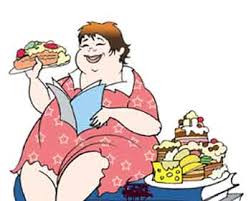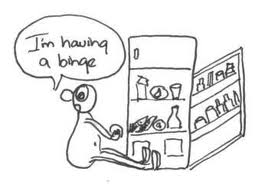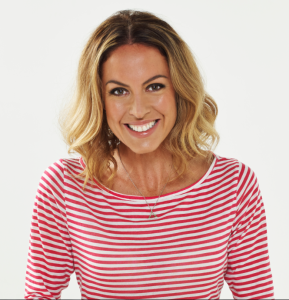Confessions of the Chronically Sick!

More Confessions of a Sick Person
Ten more confessions about life while sick.
Published on February 6, 2014 by Toni Bernhard, J.D.
In October of 2012, I wrote a piece called “Confessions of a Sick Person.” Fast forward almost a year and a half, and I have more to confess. Ten confessions then. Ten confessions now.
Some are lighthearted, some are not. It may not be in my best interests for the people in my life to read these confessions, but I offer them anyway because I feel as if most of them are on behalf of everyone who must live day in and day out with chronic pain and illness. So, here goes…
1. Even when I really want to see people, I’m relieved when they have to cancel.
The reason is simple: their cancelling also cancels the payback I’ll have to go through as a result of the visit. Because there’s not a day when I don’t feel sick (I call it “the flu without the fever”), I’m willing to pay the price so that I can be with other people sometimes. But, as I said, there’s always a sense of relief when I know I’ve saved my body from payback.
Last Fall, I committed to a few nearby events so I could introduce people to my new book. One afternoon, as I was getting dressed to go to an event at my local bookstore, I found myself saying softly to my body, “I’m sorry for forcing you to do this.” I was taken aback by these words until I realized that, although I’d freely chosen to do this event, had the bookstore called and cancelled, I confess…I’d have been relieved.
2. I’m increasingly unable to distinguish nightshirts from going-out-in-public shirts and slippers from shoes.
This can set me up for embarrassment. I have a nightshirt that, to me, looks nice enough to wear out. The problem is, it almost goes down to my knees and so I’m sure that, to others, it looks like the nightshirt that it really is.
And recently, I bought some footwear online from L.L. Bean called “scuffs.” They sure looked like shoes to me, but the first time I wore them out, I was diplomatically told that I’d left the house in slippers. I’m left wondering two things: just what are “scuffs”? and, in my isolation, has a whole new language for clothes passed me by?
3. I don’t brush my dog’s teeth.
The vet impressed on me how important this was—even though none of the many dogs I had as a child ever had their teeth brushed. The thing is, some days it’s a big accomplishment just to brush my own teeth, so I’m afraid Rusty is on his own here.
4. Sometimes, I badly wish I were young again.
I’m not proud of this confession, but the fact is, when I was young, I wasn’t sick. On the other hand, it’s also true that when I was young, I was unhappy a lot of the time. I thought I should always be able to get my way, and when I didn’t, I felt cheated by life. Now that I’m older and (supposedly) wiser, I understand that life doesn’t always serve up what I want it to and that the key to happiness is making peace with the way things are, whether they’re to my liking or not. And so, I’m happier now than when I was young. I really am.
And yet, even knowing that if I were young again, I’d lose this acquired wisdom and thus be less happy than I am now, sometimes there’s no way around it: I wish I were young again. Young and not sick.
5. I no longer know what groceries cost.
I’m fortunate that husband does all the grocery shopping. When he’s out of town, he stocks up on food for me. He’s been doing this for so many years that I rarely know what things cost.
Sometimes he playfully names an item and asks me what I think it costs: a quart of milk, a bunch of bananas, toilet paper. I was always way off the mark until I figured out a way to beat his game. I make a silent guess at what I think the item costs and then multiply that number by four. That usually gets me close.
6. Sometimes I wish my disability were visible, even if it meant that I’d be less functional than I already am.
It’s sad to have to confess to this desired trade-off: less functionality in exchange for not having to respond to “But you don’t look sick.” But there you have it.
7. I may have an unhealthy dependence on the internet…and I don’t care.
When my internet connection goes down, I’m immediately on edge. Then a light bulb goes on in my brain and I think: “No problem. I’ll just Google ‘troubleshooting your internet connection.’” Then I realize I can’t Google anything. Next, I think: “Well, at least I can email a friend in town and see if her internet is down too.” Then I realize I can’t email anybody.
This leads me to conclude that I may have an unhealthy dependence on the internet. This brief reflection is immediately followed by the thought: “I don’t care. Just get my internet up and running whoever or whatever you are that’s keeping me from being online. And I mean NOW!”
8. When I have a health problem not connected to my chronic illness, I usually hide it from others.
Why would I hide it? Because I don’t want anyone to think I’m a serial chronic illness-er (a phrase I just made up). It took me a long time to get some of the people in my life on board with the fact that I’m sick all the time. I don’t want to suddenly lay on them that I also have something like a pesky skin condition or recurring bladder infections. I fear they’d roll their eyes and silently think: “Another medical problem?” So, I leave well enough alone, but I confess that keeping things private in this way increases my sense of isolation.
9. While I don’t wish poor health on anyone, I sometimes want my book How to Be Sick to fall into the hands of a celebrity with health problems who would declare it to be the definitive book on living well with chronic pain and illness.
An embarrassing confession, this one. (Each of you may have your own version of it.) Although I don’t spend my time daydreaming about it, once in a while, the thought creeps in: “Since so many people say they love the book, why can’t Oprah say it? Or Dr. Phil? Or Dr. Oz?” (I’m not picky about celebrities on this matter.)
10. And finally, a repeat confession because it’s truer than ever: When I’m alone, my eating habits are fit only for my hound dog to see.
When I’m alone, I often lick the bowls or plates after I’ve eaten from them. Not only is there food to be had there, but every dish licked is a dish that’s easier to wash.
© 2014 Toni Bernhard www.tonibernhard.com
https://www.facebook.com/how.to.be.book.author (Toni’s Facebook page)
My most recent book is titled How to Wake Up: A Buddhist-Inspired Guide to Navigating Joy and Sorrow.
I’m also the author of the award-winning How to Be Sick: A Buddhist-Inspired Guide for the Chronically Ill and their Caregivers.
About Toni
| Our lives can take an unexpected turn at any moment. Mine did in 2001: I got sick with what the doctors initially diagnosed as an acute viral infection—but have yet to recover. I was a law professor for 22 years at the University of California—Davis until the illness forced me to retire. During those 22 years, I served six years as the law school’s dean of students. I had a longstanding Buddhist practice and co-led a weekly meditation group with my husband (who’s also named Tony!). |  |
|
| I never expected to become an author but, faced with learning to live a new life, I wrote How to Be Sick: A Buddhist-Inspired Guide for the Chronically Ill and Their Caregivers. Truth be told, I began it as a manual for myself, but when I shared parts of it with others, they encouraged me to turn it into a book. And so I did. To my surprise and delight, it has garnered a worldwide following and has won two Nautilus Book Awards: a Gold Medal in Self-Help/Psychology and a Silver Medal in Memoir. It was also named one of the Best Books of 2010 by Spirituality and Practice.My new book, How to Wake Up, is written in the same conversational style as How to Be Sick. I like to write as if I’m interacting with the reader. A short video on the Home page explains how I came to write this second book.
I’m active on several social media sites and enjoy maintaining personal relationships with people from all over the world despite my illness. My blog, “Turning Straw Into Gold,” is hosted on the website of Psychology Today. |
||
Are You a Binge Eater?

 Are you a binge eater? Nothing to be ashamed to admit. You are amongst friends. I was a binge eater and I started young. Let me clarify that I am not the kind of binge and purge kind of binge-er. I am the eat everything sweet or carbohydrate in the house kind of eater. Or I should say I was.
Are you a binge eater? Nothing to be ashamed to admit. You are amongst friends. I was a binge eater and I started young. Let me clarify that I am not the kind of binge and purge kind of binge-er. I am the eat everything sweet or carbohydrate in the house kind of eater. Or I should say I was.
I have kicked that habit right out the door and I am a better person, or I’d like to think I am. Heck, haven’t we all binged a few times? My typical binging always had the TV involved. Boy, there was nothing like a cold, snowy day; a good movie on and a bowl of popcorn and pint of Ben & Jerry’s. Then after I consumed that, I would rip open the pantry doors searching for something else. Usually I would make my own chocolate chip cookie dough (without eggs) and eat it raw. Yup, then the guilt would come.
When I was younger I could get away with the typical binge but now that I am older, I cannot without the added weight gain. Binging had to end.
This is from Wikipedia, You know you are a binge eater if:
- Feels disgusted, depressed, or guilty after binge eating.
- Eats an unusually large amount of food at one time, far more than a regular person would eat.
- Eats much more quickly during binge episodes than during normal eating episodes.
- Eats until physically uncomfortable and nauseated due to the amount of food consumed.
- Eats when bored or depressed
- Eats large amounts of food even when not really hungry.
- Often eats alone during periods of normal eating, owing to feelings of embarrassment about food.
 How I resolved my binge eating.
How I resolved my binge eating.
I knew I had to get a grip on my binge eating. It was becoming a growing problem and I had to face it once and for all. I did some researching and women are more likely to do it than men; usually has to do with depressions, loneliness or boredom; and you can learn from parents if they are binge eaters.
It seems pretty ridiculous that I was binge eating. I wasn’t depressed or lonely, but maybe I was bored. After all, binge eating isn’t really a group activity and I eat like a bird when I am at social functions. Well, unless it’s at the Christmas buffet where I go a little crazy on the sugary desserts. Oh well, that’s only one day a year. Why I really think I was binging is, I was having my own personal party with no one around to judge.
- So, I stopped eating in front of the TV.
- I eat smaller portions of healthy foods.
- I do not eat (or try not to eat) sweets.
- I do not snack unless it is a stalk of celery.
- I do not eat popcorn or chips.
- I no longer eat peanut butter in fact it is not even allowed in the house. (That’s my gateway food.)
- If I serve ice cream or pie after dinner, the leftover is sent to my neighbor’s house.
- I do not stare at the chocolate bars in the checkout line especially the Reese’s Chocolate and Peanut butter or take them home.
Because my willpower is at it’s lowest at night, I had to eliminate most of the sweets in the house or I will get up in the middle of the night and eat them. This is because I have cut my calorie intake to an all time low so I am usually hungry and will go to the freezer, pull out the pint of ice cream and with just spoon directly in to the container, eat it all in front of the TV. Ugh! Sometimes I don’t like ME.
It did take loads of practice but I kicked the habit and no longer automatically reach for something sweet or salty to eat while I watch TV. In fact, it sort has taken away the sport of TV watching which resulted in the many hours of TV I watch. Well heck, it’s not that much fun anymore now that I don’t binge. Funny how that worked. Hmmmm
Sarah’s Story: Quitting Sugar Saved My Thyroid.

Quitting Sugar Saved My Thyroid: Sarah Wilson’s Story
By Everyday Health Guest Contributor
Published Jan 13, 2014
By Sarah Wilson, Special to Everyday Health
Every now and then our bodies like to tell us, in no uncertain terms, to stop and take note. A common cold politely tells us to back off when we’re pushing too hard. More serious illness can arrive as a “canary down the mine shaft”, signalling the need to quit the toxic job or leave that relationship that’s run your spirit into a cul-de-sac. Some of us get the message too late. Some of us are lucky enough to get our wake-up call just in time.
Five years ago, I was keeping myself frantically busy editing Cosmopolitan magazine. I was running over 30 miles a week and had just competed in a 24-hour mountain bike race. Sleep? I only needed four or five hours a night, and I propped myself up on a rotating cycle of black coffee in the morning and red wine at night. I was burning my rechargeable, ever-ready candle at both ends in the most spectacular of fashions. And getting away with it.
But then my body collapsed.
It’d had enough of my arrogance, and it ground me to a halt. Quite literally. It was as if it were telling me: Young lady, you’re not going any further until you’ve had a good hard look at yourself. It’s time to wake up.
My hair had started falling out and my nails were peeling off in fine sheaths. I was tired. It felt like I was dragging my body through molasses. My thoughts were dark and fumbling and my joints were like jelly; I was falling over a lot and my knees soon became covered in scabs. In the middle of all this, I climbed Machu Picchu in Peru. I put the weakness in my limbs down to altitude sickness and did what I always do when think I’m dropping the ball – I climbed harder and faster.
When my period stopped, however, I got a blood test. The diagnosis was Hashimoto’s disease.
A Little Gland with Big Problems
Hashimoto’s is an autoimmune disease of the thyroid. This little butterfly-shaped ball of endocrine activity happens to be rather important – it controls metabolism, female hormones, circadian rhythms and energy levels. Pretty much, as one specialist told me, everything that makes you feel good about being you. Is it hereditary? A predisposition to it is, yes. It can be triggered by a litany of toxic factors.
When I was 22 I had Graves’, or hyperactive thyroid, where your body produces too much thyroid hormone, causing everything (metabolism, adrenalin, hormone production) to speed up. Twelve years later I’d burnt the poor thing out and developed a hypo-active, or under active, version (Hashimoto’s), characterized by a visceral slowing down. It was a bit like the lifespan of a supernova – it burnt furiously and brightly for a while, then, poof!, it was gone.
My case, I was told, was more of an intergalactic implosion. By the time I sought help, my thyroid stimulation hormone levels had ricocheted off the scale.
Because I’d left my condition untreated for so long, and my body was so depleted of energy, it went looking for juice elsewhere, wreaking adrenal havoc along the way. Further tests revealed my white blood cell count was barely existent; I had a leaky gut (protein was being absorbed undigested into my system) and kidney and gall bladder damage. Western medicine took a rather alarmist route with me: one endocrinologist told me I was “adrenally skeletal”. Another doctor, upon seeing my TSH levels, said it was a “miracle” I was vertical and prescribed hefty does of Thyroxin. What would’ve happened if I’d gone further without treatment, I asked him? He didn’t look up from his script: “heart failure”.
This titbit, strangely, came as a relief. My fatigue was justified! I was allowed to stop. So I quit my job and started the long process of learning how to rest and… just be.
A few more tests later and I learned I also had no female hormones left and was effectively infertile. For good? No one could be sure. Ever since I was 17, all paths had led to having children; it felt like my end point, after years of career slog, had been smudged out.
The Thyroid Roller Coaster
I was 34, single, childless, jobless and anchor-less. All of which made me more determined to get better. As in, truly better; not just back to where I’d been. Like so many women in my position, I began reading about alternative ways to heal my body and developed a hunger for a stiller, less adrenaline-fueled grind through life.
But – wait for it – then came the weight gain. When I was 22, I lost 33 pounds in 5 weeks. This time I put on 22 pounds in 15 weeks. Was this a lot? I know other sufferers who put on twice that; my grandmother fluctuated from 77 to 165 pounds during her thyroid roller coaster ride. But for anyone – particularly us women, who are more scrupulously judged – sudden, unjustified weight gain of any amount feels like too much.
I had spent years as a health advocate, encouraging women to accept a broader span of body contours, reminding them that our bodies change shape and size throughout our lives. I’m not a vain person, and I’m acutely mindful of how dangerous it is to become attached to a fixed idea of what we’re meant to look like. But I can tell you, going up two sizes over the course of one summer shook me to the core, and I had to draw on every ounce of Zen-like surrender and maturity to stop my self-esteem from crumbling.
All of society’s prejudices and neuroses about weight gain bubbled to the surface. I began to apologize for my bigger self; I’d tell friends and colleagues I hadn’t seen for a few months about my weight gain before they’d had a chance to issue a greeting. I wanted to save them the awkwardness of having to mask the judgement I thought they must be passing. This, in my experience, is a particularly female thing to do – to point out our faults before anyone else can. I guess it’s a way of controlling the uncontrollable, taking too much responsibility for the comfort levels of others.
Of course, my clothes didn’t fit anymore, but I refused to buy new ones. I convinced myself that the new-found curves were a passing phase, that they’d slide right off my frame soon enough. This lack of acceptance also took its toll: I stopped living in the present; I put off feeling beautiful and graceful.
Eventually, the lessons my body set out to teach me began to crystallize. Truth was, my body had to get heavier in order to get better. My bull-at-a-gate lifestyle of yore had left me drawn and scrawny. The more weight I put on, the better I got, organ by organ. It was as if I needed to nourish my internals with some padding and “juice” for them to heal. This process taught me some incredibly rewarding lessons in acceptance.
A New Approach to Getting Better
Getting better was a multi-dimensional affair. While Thyroxin band-aids the immediate problem, there is no instant fix for what caused the disorder in the first place, nor the subsequent damage I’d done. To fix this, I had to shift my lifestyle patterns.
If I can recommend two things to anyone suffering an autoimmune disease, it’s to meditate and to quit sugar. The combination worked to pacify and calm my entire system, at a cellular level. Slowly, slowly, the tension and contraction that caused my disease unraveled. The fuzz lifted, the moods abated, my energy increased in an even way. In some ways, healing an autoimmune disease is about addressing the symptoms and working back to the original cause.
Quitting sugar, quite frankly, is mandatory if you have an autoimmune disease. Sugar causes leaky gut (often cited as the precursor to autoimmune disease). Sugar inflames and mucks with the entire endocrine system and insulin spikes destroy the thyroid gland. In addition to the damage caused by insulin, a compromised thyroid gland will slow the removal of insulin from the bloodstream.
Meditation, meanwhile, shuts off my mind long enough for my body to have the space and energy to heal itself. Even the process of learning to meditate brings grace and gratefulness into one’s life. This shifts everything.
I’m now grateful– yes, grateful– for the wonderfully bodacious and comically obvious wake-up call I received. I needed to change the frantic way I lived my life, and lord knows I wasn’t going to do it on my own. So, what do you know? I got precisely the type of illness my body and me deserved. Over time, I’ve learned to unfurl and modulate my illness. Two months ago I got my period back. I can exercise daily now, and my gut is balancing out. My nails grow and my energy is mostly even. I don’t expect – or even want – complete recovery. It’s going to be a life of vigilant modulation: a way of life I’ve come to enjoy.
Sarah Wilson is an author, TV host, blogger and wellness coach whose journalism career has spanned 20 years across television, radio, magazines, newspapers and online. She is the former editor of Cosmopolitan magazine and was the host of the first series of MasterChef Australia, the highest rating show in Australian TV history. Sarah is the author of the Australian best-seller I Quit Sugar, due for release in the UK and the USA early 2014. She’s also authored the best-selling series of ebooks from IQuitSugar.com, including I Quit Sugar: an 8-week program, I Quit Sugar Cookbook, I Quit Sugar Chocolate Cookbook, I Quit Sugar Christmas Cookbook and the soon-to-be-released I Quit Sugar Kids Cookbook.
A Diet Cure For Cancer? Hallelujah Diet!

 I heard about the Hallelujah Diet from my neighbor who has a relative that had cancer and was given the “prepare for death” speech from his doctor. The man went home and went on the diet and well, that was over 10 years ago, so according to him, it works? In case you have never heard of the Hallelujah Diet it is religious based and quoted by some as God’s Diet. Here is a quote from the bible: The Hallelujah Diet is based on the physical nourishment as intended from our Provider in Genesis 1:29: “And God said, Behold, I have given you every herb bearing seed, which is upon the face of all the earth, and every tree, in the which is the fruit of a tree yielding seed; to you it shall be for meat [food].”
I heard about the Hallelujah Diet from my neighbor who has a relative that had cancer and was given the “prepare for death” speech from his doctor. The man went home and went on the diet and well, that was over 10 years ago, so according to him, it works? In case you have never heard of the Hallelujah Diet it is religious based and quoted by some as God’s Diet. Here is a quote from the bible: The Hallelujah Diet is based on the physical nourishment as intended from our Provider in Genesis 1:29: “And God said, Behold, I have given you every herb bearing seed, which is upon the face of all the earth, and every tree, in the which is the fruit of a tree yielding seed; to you it shall be for meat [food].”
The Hallelujah Diet is a menu of 85% raw, uncooked, and unprocessed plant-based food, and 15% cooked, plant-based food.
The 85% Raw Portion
This portion of The Hallelujah Diet is composed exclusively of the garden foods God instructs man to eat (Genesis 1:29). The dense living nutrients found in raw foods and their juices produce abundant energy and vibrant health while satisfying our cells’ nutritional needs, controlling hunger efficiently.
- Beverages: Freshly extracted vegetable juices, BarleyMax, CarrotJuiceMax, BeetMax, and remineralized distilled water
- Dairy Alternatives: Fresh almond milk, creamy banana milk, as well as frozen banana, strawberry, or blueberry “fruit creams”
- Fruit: All fresh, as well as unsulphured organic dried fruit (limit fruit to no more than 15% of daily food intake)
- Grains: Soaked oats, raw muesli, dehydrated granola, dehydrated crackers
- Beans: Green beans, peas, sprouted garbanzos, sprouted lentils, and sprouted mung beans
- Nuts & Seeds: Raw almonds, sunflower seeds, macadamia nuts, walnuts, raw almond butter or tahini (consume sparingly)
- Oils and Fats: Extra virgin olive oil, Udo’s Oil, flaxseed oil (the oil of choice for people with cancer, except men with prostate cancer, who may be better served meeting the essential fat needs through freshly ground flaxseed), and avocados
- Seasonings: Fresh or dehydrated herbs, garlic, sweet onions, parsley, and salt-free seasonings
- Sweets: Fruit smoothies, raw fruit pies with nut/date crusts, date-nut squares, etc.
- Vegetables: All raw vegetables
- Soups: Raw soups
The 15% Cooked Portion
Cooked foods follow the raw salad at lunch or evening meals and can prove beneficial for those trying to maintain body weight.
- Beverages: Caffeine-free herb teas and cereal-based coffee alternatives, along with bottled organic juices
- Beans: Lima, black, kidney, navy, pinto, red, and white
- Dairy: Non-dairy cheese, almond milk and rice milk (use sparingly)

- Fruit: Cooked and unsweetened frozen fruits
- Grains: Whole-grain cereals, breads, muffins, pasta, brown rice, millet, etc.
- Oils: Vegan mayonnaise made from cold-pressed oils
- Seasonings: Same as the 85% portion, plus unrefined sea salt (use sparingly)
- Soups: Soups made from scratch without fat, dairy, or refined table salt
- Sweeteners: Raw, unfiltered honey, rice syrup, unsulphured molasses, stevia, carob, pure maple syrup, date sugar, agave nectar (use very sparingly)
- Vegetables: Steamed or wok-cooked fresh or frozen vegetables, baked white, yellow or sweet potatoes, squash, etc.
Food to avoid!
Watch out for these!
What most people do not realize is that almost every physical problem they experience, other than accidents, has a diet related cause.
Because our physical body is designed by God to be nourished with living (raw) foods, it is imperative that the greatest percentage of our daily food intake be composed of raw foods—and that we avoid the foods that are causing the problems in the first place.
Here are a list of foods that are excluded from The Hallelujah Diet. Although this list is far from comprehensive, using it as a guide will help you determine whether or not other foods are beneficial.
Beverages
- Alcohol
- Coffee (grain coffees like Pero and Roma are fine)
- Teas containing caffeine (caffeine-free herb teas are fine)
- Carbonated beverages and soft drinks
- All artificial and sugar containing drinks, sport drinks, and all juices containing preservatives, refined salt, sugar, and artificial sweeteners
Refined sugar suppresses the immune system and prevents its ability to protect us from germs, viruses, and bad bacteria. One 12 oz soft drink contains approximately 11 teaspoons of sugar and if consumed daily for one year, adds 15 pounds of weight.
Dairy
- All milk, cheese, ice cream, whipped toppings, and non-dairy creamers
Cow milk and cheese are some of the most dangerous foods we can place into our body. Read Dr. T. Colin Campbell’s book, The China Study for documentation (it will change your life).
Soy Milk and other Soy Products
- Most soy products should be avoided
Soy is high in estrogen. The estrogen in soy formulas has been known to cause baby girls to develop breast buds as young as two years of age, and the age of puberty, which should be past the age of 15 years, is now as early as 8, 9, and 10 years.
The growth hormones in animal flesh and dairy are also contributing to this problem. Estrogen can be a contributing factor in all female cancers, and the high protein content of soy can actually feed cancers.
Processed Fruits
- Canned and sweetened fruits
- Non-organic and sulfured dried fruits
Refined Grains
- Refined, bleached flour products, most cold breakfast cereals, and white rice
Refined grains are devoid of fiber and thus one of the leading causes of constipation. Animal-source foods are also totally devoid of fiber.
All Meats and Eggs
- Beef, pork, fish, chicken, eggs, turkey, hamburgers, hot dogs, bacon, sausage, bologna, etc.
All animal-source foods are harmful to the body and are the cause of up to 90% of all physical problems. Eliminating animal source foods can practically eliminate the fear of having a heart attack, stroke, cardiovascular problems, cancer, diabetes, osteoporosis, heartburn, gout, acid stomach, and the list goes on and on.
Certain Nuts and Seeds
- All roasted and/or salted seeds and nuts
Peanuts in particular are not a nut but a legume, and very difficult to digest.
Certain Oils
- All lard, margarine, shortenings, and anything containing hydrogenated oils or trans fats
Certain Seasonings
- Refined table salt and any seasonings containing it
Unlike mineral-rich unrefined salt, which is beneficial, refined table salt is devoid of such minerals, containing 97% to 99% sodium chloride. It is a leading cause of high blood pressure. Celtic or Eden Sea Salt, a natural, unrefined salt from the sea, is a good choice.
Certain Soups
- Any canned, packaged, or creamed soups containing salt or dairy products
Certain Sweets
- All refined white or brown sugar (brown sugar is simply refined white sugar with some molasses added for color)
- Sugar syrups
- Chocolate (carob is a wonderful chocolate substitute)
- Candy, gum, cookies, donuts, cakes, pies, or other products containing refined sugars or artificial sweeteners
Acceptable sweeteners include raw unfiltered honey, stevia, agave nectar, and pure maple syrup (use any of these sparingly).
Processed Vegetables
- All canned vegetables with added salt or preservatives
- Vegetables fried in oil
All Drugs
Though these are not foods, most are addictive and very destructive within the body:
- Alcohol
- Nicotine
- Caffeine
- Marijuana, cocaine, heroin, etc.
- Many over the counter and doctor-prescribed drugs
IMPORTANT: You must always consult with your doctor who is treating you for your serious illness including the Hallelujah Diet and do not discontinue any prescriptions without your doctor’s consent.
For more info on the Hallelujah Diet you can Google it or check out this website. http://www.hacres.com/Click here for the diet Book The Hallelujah Diet
Let Go of Perfection

Prevention News
Prevention News
Why You Should Let Go Of Weight Perfection
What’s Your Ideal Weight?
What that number really means
By Tracy Miller

There’s your age. Your birthday. Your phone number. Your social security number. And then there’s that other number that’s been lurking in your head for years: Your ideal weight.
If you’re like most women, those three digits are all but tattooed in your brain—easily conjured up the moment your jeans feel snug or you step on the scale. But how did it get there in the first place? And what does it even mean? Not much, according to experts.
“A lot of women have an ‘ideal’ weight they think they’ll feel best at,” says Jessica Crandall, a registered dietitian and spokesperson for the American Academy of Nutrition and Dietetics. “Even though they’re healthy and their BMI is healthy, they still feel that pressure that can encompass their entire lives.”
Often, says Crandall, we fixate on a target weight—wanting to be 125, say, when you’re actually 135—without really knowing why. “You may have been there once early on, in your teens or early 20s, and you felt comfortable at that time,” says Crandall. “Or it might be something that a doctor once put into your head, and it just stuck there.” But chances are, it doesn’t deserve the attention you’ve been giving it.
If losing a little weight has become an oversized obsession, here’s how to divert your focus away from that number and toward more important things—you know, like the rest of your life.
Ask yourself why. “I ask clients what their goals are to help them see where they’re coming from,” says Crandall. If your ideal weight is a number you’ve been carrying around for decades because it’s what you weighed in college or at your wedding, ask yourself what’s more important—hitting that number again or how you feel from day to day? Restate for yourself the importance of a healthy balance between work, life, and concerns like diet and exercise.
Pick a new measurement. In fact, don’t just stop at one. Several different factors go into determining your individual healthy weight range, says Crandall, such as body fat composition, bone size, muscular structure, BMI, and waist circumference. A registered dietitian can properly assess the overall balance of your body and whether you really need to lose a few pounds—or need help setting more appropriate goals.
Stop the strict dieting. “There is not one food that’s going to cause you to gain weight,” says Crandall. Yet many women stick to a short list of “acceptable” foods when dieting—which can backfire. Dieters may cut out sugar, for instance, and think that means they shouldn’t eat a fresh orange, says Freytag. “Of course you should have an orange!” she adds. “It’s the added sugars in processed foods and drinks that are the problem.”
More from Prevention: Why You Shouldn’t Be a Diet Perfectionist
Don’t live at the gym. If you’ve been plugging away on the elliptical trainer with all the enthusiasm of a prisoner walking the plank, try mixing it up. “You don’t want to become obsessive with your activity,” says Crandall. “If you’ve been running and running and running, try yoga or biking.” Determine a healthy amount of time you want to devote to exercising each week, then stick to the plan.
Focus on re-sculpting. “Muscle is the secret to long-term metabolism boosting,” says Freytag. “I usually say to women, ‘Let’s forget about those five pounds and focus on re-sculpting your body.’ ” If you change your focus to being healthy, fit, and toned, a few pounds up or down won’t matter.
Published April 2012, Prevention
Why You Should Let Go Of Weight Perfection
What’s Your Ideal Weight?
By Tracy Miller

There’s your age. Your birthday. Your phone number. Your social security number. And then there’s that other number that’s been lurking in your head for years: Your ideal weight.
If you’re like most women, those three digits are all but tattooed in your brain—easily conjured up the moment your jeans feel snug or you step on the scale. But how did it get there in the first place? And what does it even mean? Not much, according to experts.
Published April 2012, Prevention



 D5 Creation
D5 Creation